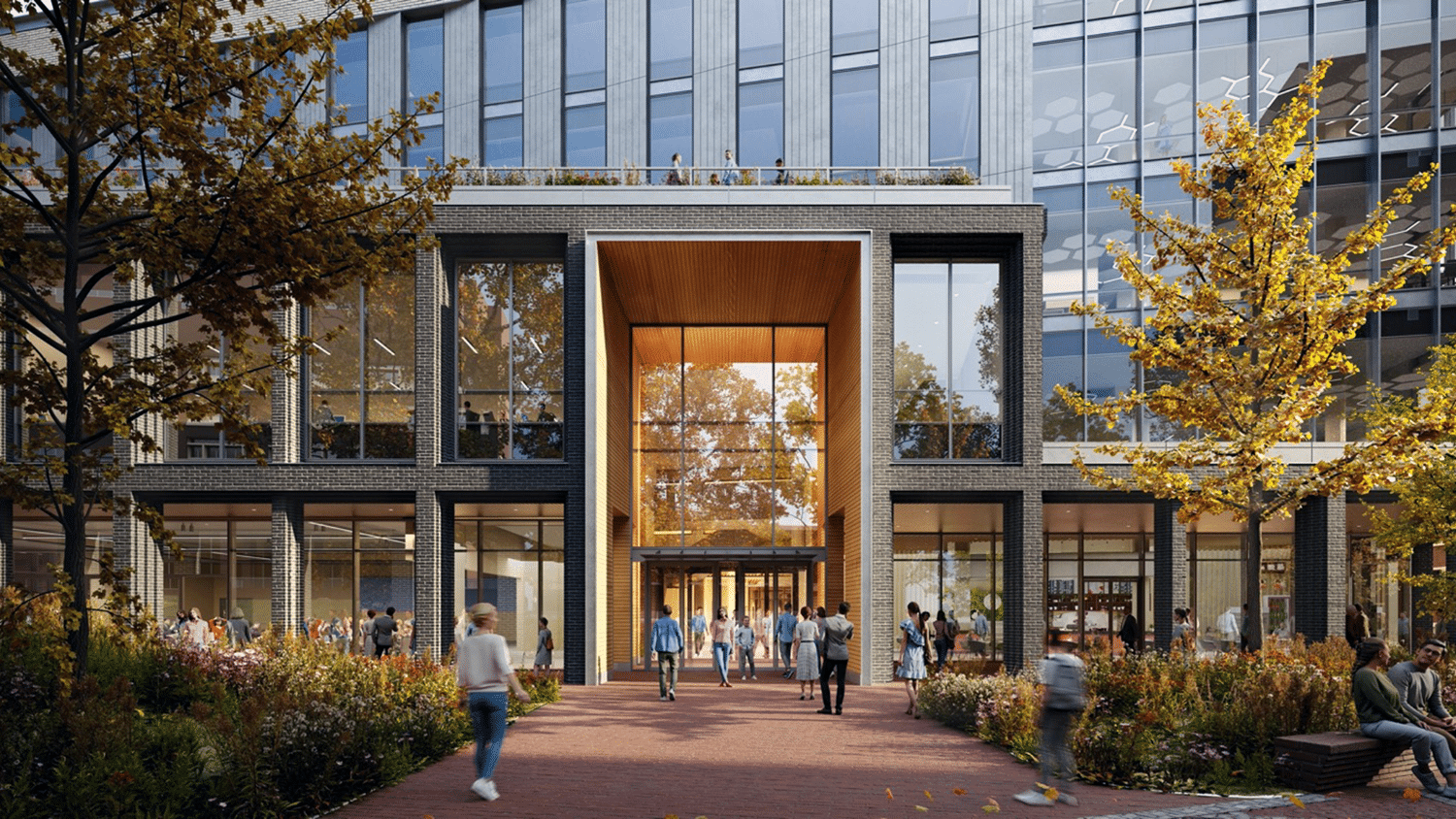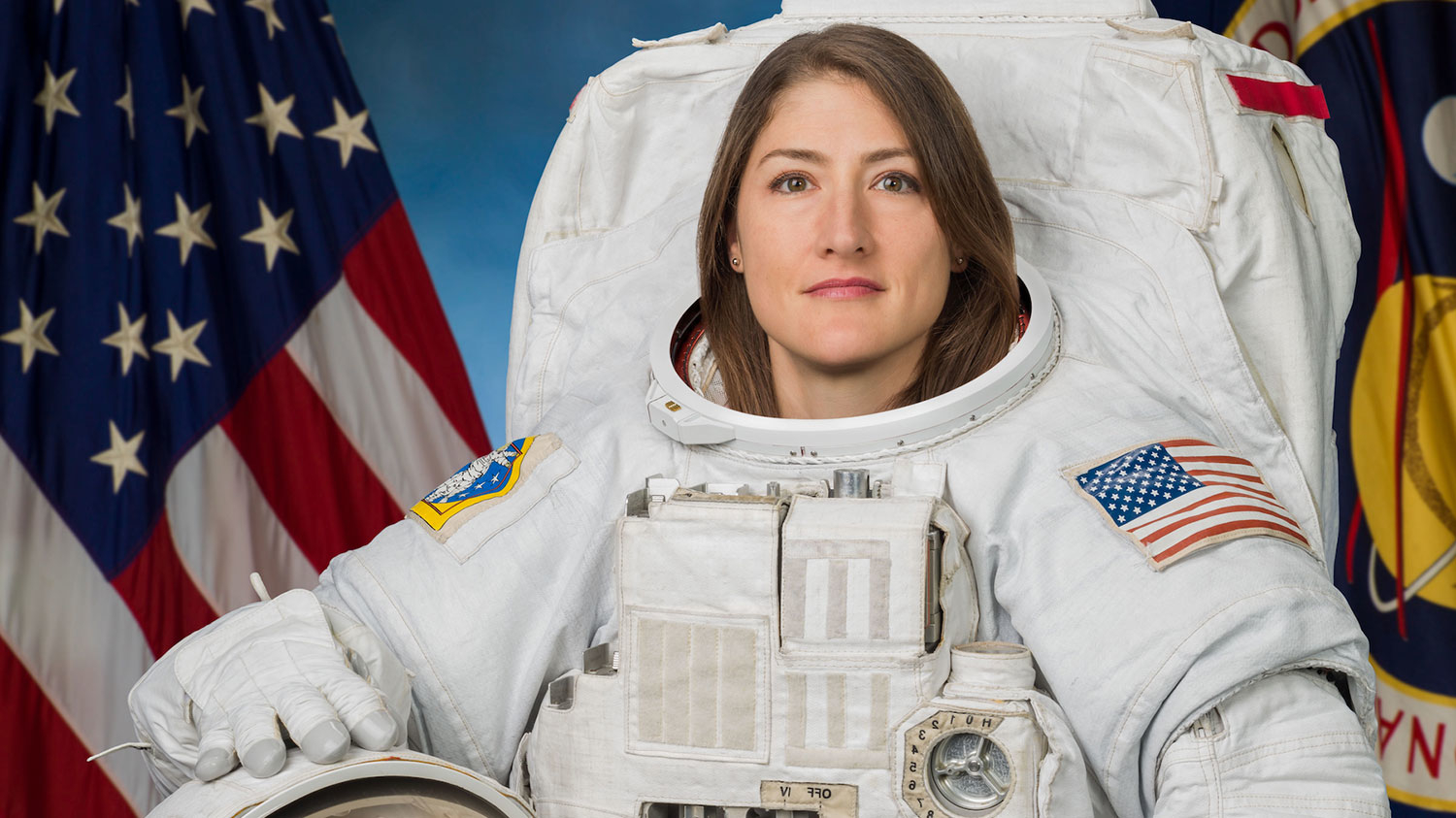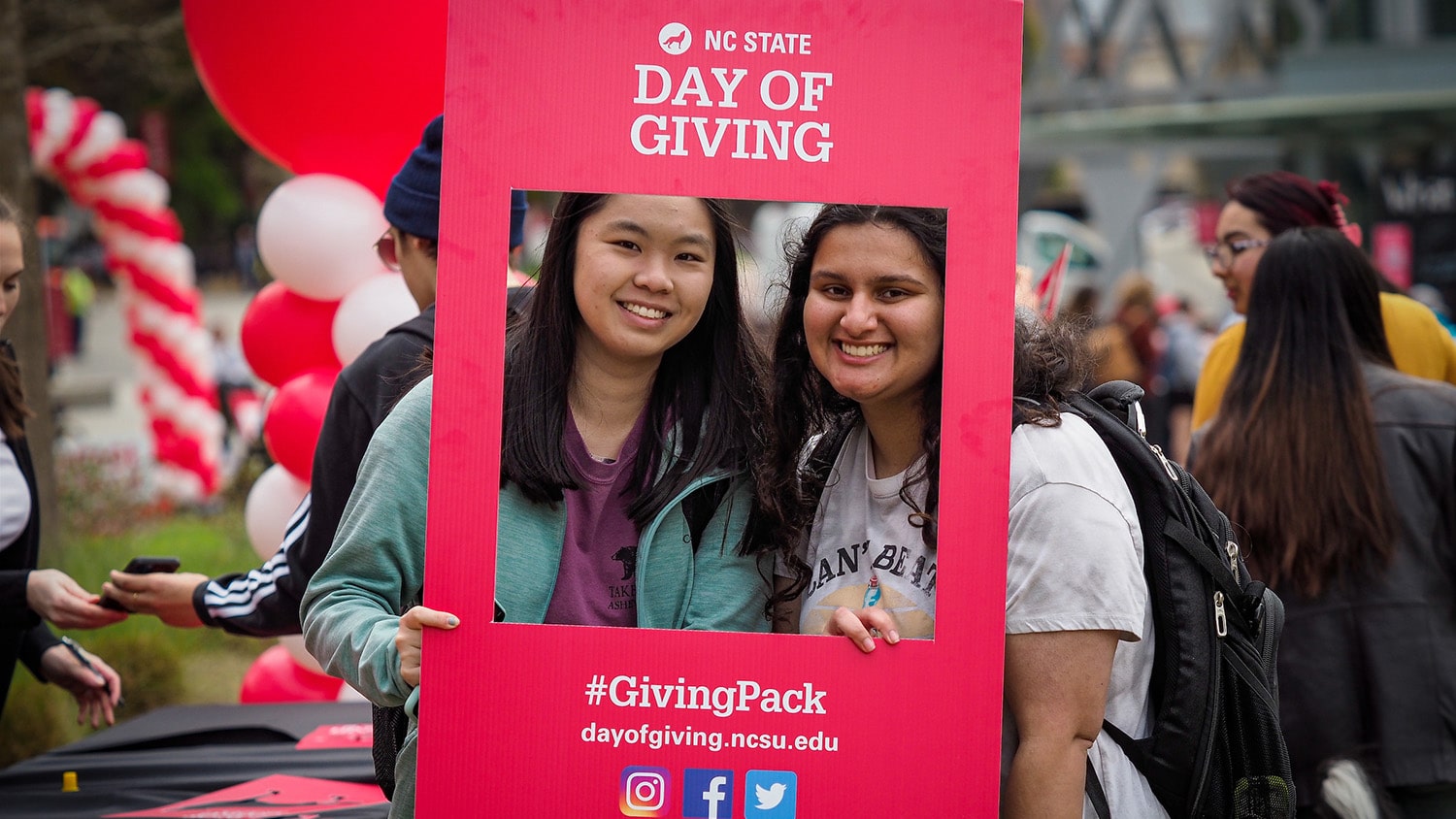Diving Into the Deanship
New dean Lewis Owen, a scuba-diving geologist, wants to build a stronger College of Sciences community and help students pursue their dreams anywhere in the world.
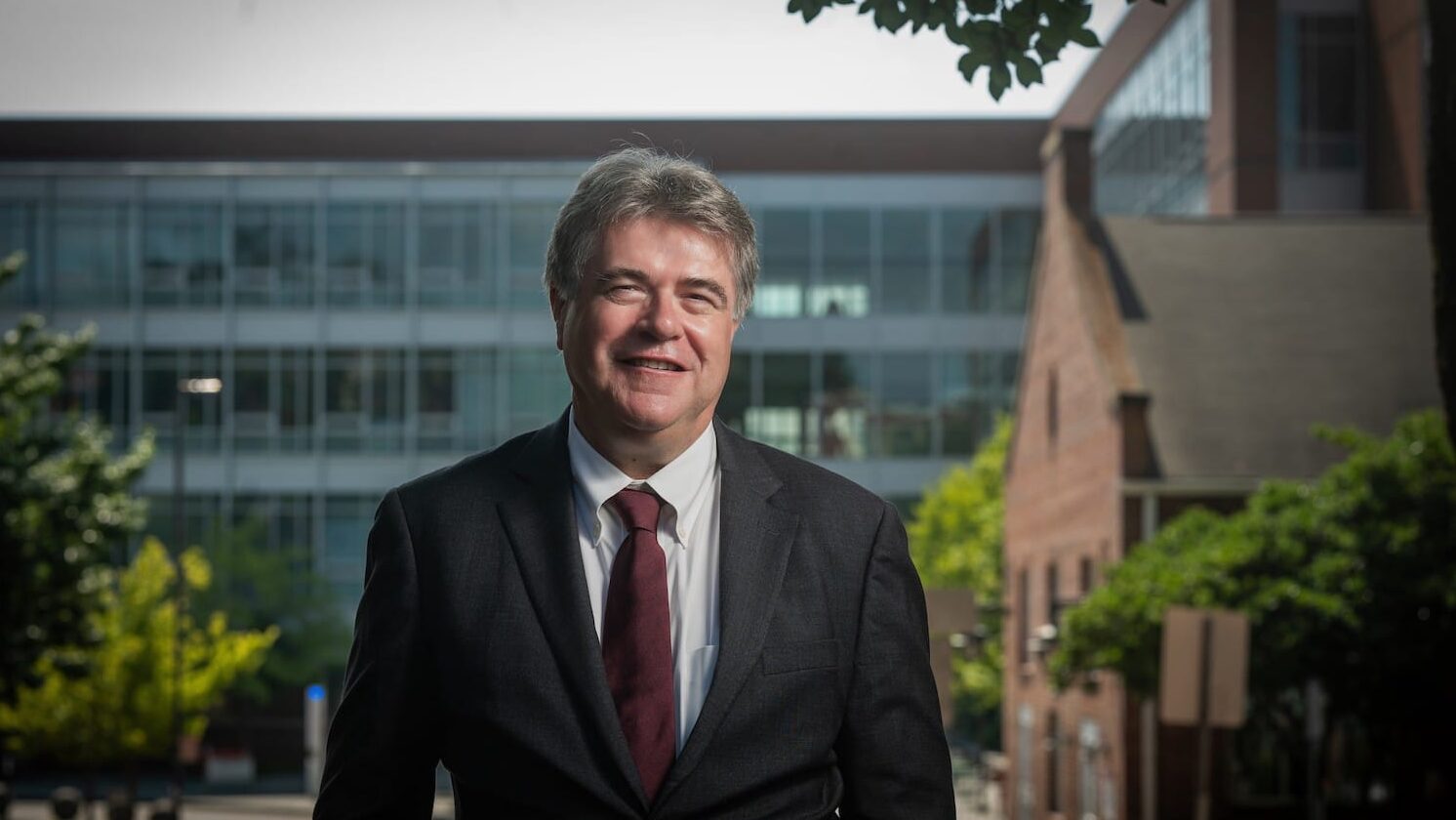
For nine-year-old Lewis Owen, a rainy-day field trip was about to change his life.
It was absolutely pouring as Owen and his father, along with other families, trudged into a quarry on an excursion run by the local museum in Cardiff, Wales, in 1973. During the visit, the group learned that the rocks in the quarry formed in warm tropical seas, and that continents were slowly drifting apart, bringing Wales from south of the equator to its present northern latitude. He was told that if they were to make a trip to America the next year, the journey would be two inches longer because the oceans had grown wider.
This introduction to plate tectonics fascinated Owen. It eventually launched him into a career in geology that ultimately led to NC State and the College of Sciences, and it continues to remind him of the power of scientific discovery.
“Every class that we teach, every experience we provide,” he said, “there’s always going to be something that helps someone look at the world in a new way.”
“If we can ensure that people are proud to be here and feel like part of a community, everything else will follow.”
In August, Owen took over as the fourth permanent dean of the college. He now oversees one of NC State’s largest and most important academic units, with more than 4,100 students and $43 million in annual research expenditures. It’s an exciting time for the 10-year-old college, which in 2022-23 set records for fundraising and research grants.
Owen hopes to build on the successes of Dean Chris McGahan, who retired earlier this year after leading the college since 2017. As a longtime department head — most recently leading NC State’s Department of Marine, Earth, and Atmospheric Sciences — Owen is accustomed to the rigors of leadership. But now he knows, more than ever, that his own research and teaching must take a back seat to the many duties of his new role, including building a stronger college community.
“I realize there will be much less time to focus on one’s own research,” he said of his new position. “But rather, I will have the pleasure of working to help a broad community.”
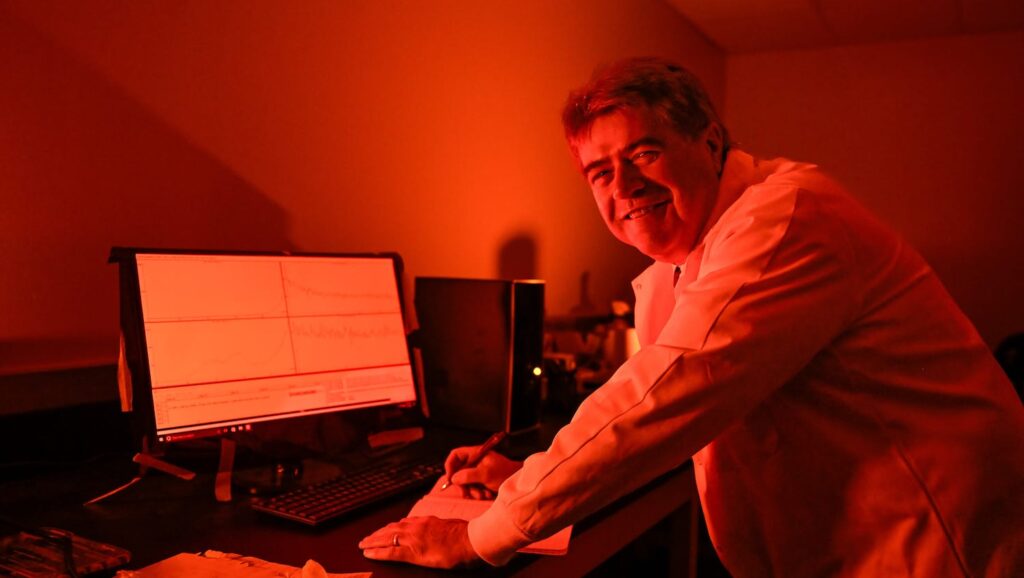
A Career in Geology
After that rainy-day field trip, Owen remained interested in geology for his entire childhood. So when the time came for college, he enrolled in the geology program at Imperial College, University of London. He contemplated a career in the oil industry — the North Sea was one of Great Britain’s key energy reserves — but he was drawn to research. He found himself spending a lot of time trying to understand how tall mountains formed, as well as exploring geomorphology, the study of landscapes.
He attended the University of Leicester for graduate school and did his doctoral research in the mountains of Pakistan, including on K2, the world’s second-tallest mountain. He stayed in remote villages and welcomed the generosity of the local people; it was an experience that helped cement his ideas about how studying abroad can benefit students.
After obtaining his Ph.D., he took a faculty position at the University of London. His research kept taking him back to the mountains, though, and during a trip to northern India he met his wife, Regina, a native of Kentucky.
After the couple got married, Owen began looking for jobs in the U.S., eventually landing at the University of California-Riverside, which was prime territory for an early-career geologist since it was near the San Andreas Fault. He received tenure there and stayed in California for seven years.
In 2004, a faculty position opened up in the Department of Geology at the University of Cincinnati. He took the job, was promoted to full professor, and eventually took over as department head. He led the department for 10 years, hiring about 10 faculty and dedicating himself to developing a healthy research and teaching environment. He also created study abroad programs, including thrilling expeditions to the Himalaya of India, in which students learned about ecological and geological change. (Owen continues to lead the Bonaire study abroad program at NC State.)
During this time, Owen was gaining a reputation as one of the world’s top geologists in paleoenvironmental change and landscape evolution. His many honors include the President’s Award of the Geological Society and the Busk Medal of the Royal Geographical Society. He was also named a Fellow of the American Association for the Advancement of Science, placing him among the nation’s most distinguished leaders in science, engineering and innovation.
But perhaps no moment was as memorable as when he co-authored a paper with Michael Palin, a member of the Monty Python comedy group. Palin is also an accomplished travel documentarian and served as president of the Royal Geographical Society for three years. The paper was published during that time; it recognized the accomplishments of contemporary geographers. (“The culmination of my career!” Owen jokes.)
In 2019, NC State’s Department of Marine, Earth, and Atmospheric Sciences was looking for a new department head, and Owen applied for and got the job. He was drawn to the links between the department’s three focus areas. During his time there, he supported the development of innovative classes that focused on multidisciplinarity. He’s particularly proud of the development of two committees related to department culture and diversity, equity and inclusion.
Dean of Sciences
When McGahan retired in January 2023, the college’s top job came open. Owen had never really considered becoming dean, but ultimately decided to apply. He’d already been taking on leadership roles with the college, becoming the first person in the Dean’s Faculty Fellow Program and working with Interim Dean John Blondin on aspects of finance, administration and human resources. He was also on the development committee for the college’s strategic plan and culture charter.
“Dr. Owen brings an experienced perspective to his role as dean, as well as a wealth of experience within the College of Sciences,” NC State Provost Warwick Arden said in a statement announcing Owen’s hire. “With his depth of knowledge of STEM disciplines, departmental leadership and the importance of scholarship to an R1 university like NC State, I am confident he will lead the college well.”
As dean, Owen is the chief spokesperson for the college, making him uniquely positioned to focus on building community. Sciences is a large college, with more than 4,100 students and 600 faculty and staff spread across more than 20 buildings on Main and Centennial campuses. Connecting those people is important. An August 31 faculty and staff picnic at Governors Scott courtyard was well-attended, and Owen wants to hold more such events in the future.
“I want people to feel good about the college,” he said.
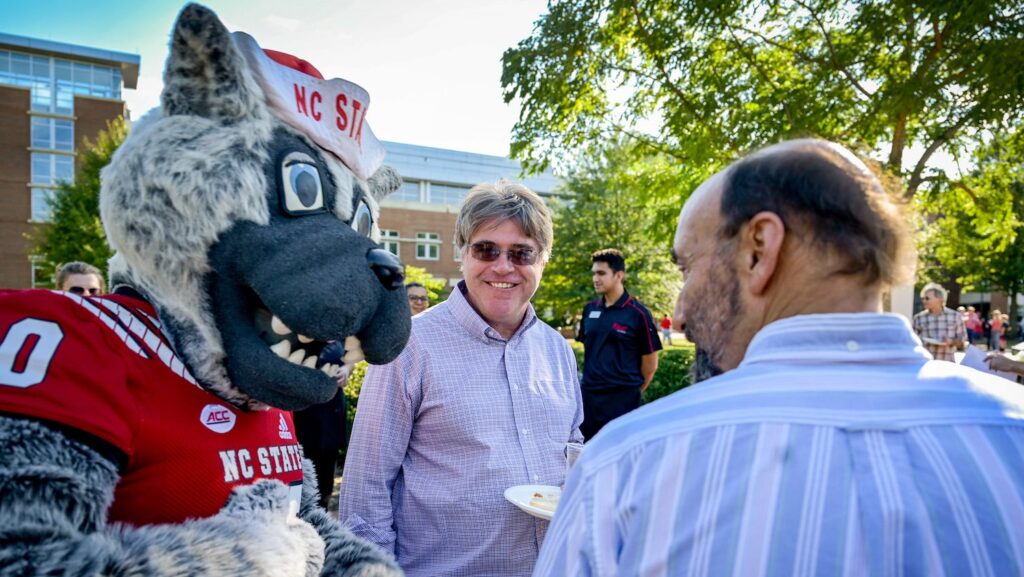
He’s also keen on encouraging students to study abroad, which includes working with alumni and friends to create endowments that can help students with limited financial resources have these life-changing experiences.
But he also recognizes the challenges of the position. NC State’s Engineering Expansion is already adding hundreds of undergraduate students to College of Sciences courses (obtaining an engineering degree requires completing many courses in the sciences), and that load will continue to increase.
Infrastructure is also a huge issue. The new Integrative Sciences Building will alleviate some space shortages, but the building will not open until 2027 and until then will be a giant construction site for the college community to navigate. Another project is the extensive renovation of Dabney Hall, which will temporarily displace dozens of faculty, staff and students (some of whom will temporarily move to nearby Broughton Hall).
These challenges – in addition to efforts to make the college more welcoming for everyone, including programming to improve mental health – are significant, but Owen recognizes that the college’s strength is its people. Much of his job is bringing them together and connecting the dots.
“A lot of what a new dean should be doing is listening,” he said.
“If we can ensure that people are proud to be here and feel like part of a community,” he added, “everything else will follow.”
He thinks back on that experience in rainy Wales many years ago, when as a nine-year-old boy he learned that the world was literally shifting beneath his feet. It reminded him that the world is continually changing.
